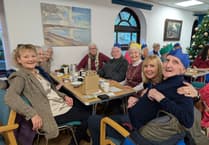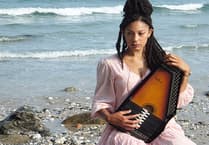IN January, NCB Radio will be celebrating its 15th birthday of broadcasting, which isn’t bad for a station that spent all its money on a bar tab within five minutes of launching and not long before that, one of our presenters who has been with us from back from nearly the start is celebrating his 60th anniversary of coming into existence.
Long story short – we’re all getting a bit old. Never too old to share our love of music with our mothers and our two friends as we try and re-live the days of radio where the presenters weren’t celebrities topping up their pensions or AI droids basing selections on algorithms, but we’re getting old.
One of the things about the passing of the sands of time is it is only when you look back that you realise just what a slave to technology and change we’ve become. When we launched, there was no thing as ‘the cloud’ for radio automation and management, for example, clouds were something in the sky outside.
Although, of course there’s always one person online who will tell you they aren’t clouds, they are airborne chemical terrorists or something.
Instead, we ran a 24 hour radio station from a computer that even then was ancient. If you wanted to record an interview, you’d spend your pennies on a cheap dictaphone while looking enviously at the Zoom H4Ns that the actual radio stations had. Internet connections relied on physical locations with a router, while in the outside world the mobile internet was practically dial-up speed. Okay, that last bit hasn’t really changed, but you get where we’re going here.
In terms of radio stations, when NCB Radio launched, we had two excellent independent local radio stations in the form of the omnipotent Pirate FM and a brilliant competitor and contemporary in Atlantic FM. BBC Radio Cornwall generally catered to an older audience at the time, with Laurence Reed being the MC of proceedings as residents rang in to complain to their local council leader about the colour of their wheelie bin.
In terms of TV, ITV had only recently abandoned any final pretence of regionality by shuttering their Plymouth studios on the Langage Science Park industrial estate while in the city itself, the studios that until 1992 had been the beating heart of local, independent ITV in the form of Westward and Television South West (TSW) at Derrys Cross were just about to be demolished after latterly being the home to a solicitors firm.
While it is very easy to get all rose-tinted about the past, a word that comes up a lot to describe the media we now consume in a multitude of different ways is everything’s ‘homogenised’ – by which we mean, no matter where you are in the country, what is on your TV is exactly the same with no differentiating character.
So our question to you is this. Yes, social media, for instance, has changed how we create and consume media. But are we genuinely better off for the ‘change’ we’ve had?



.jpg?width=209&height=140&crop=209:145,smart&quality=75)

Comments
This article has no comments yet. Be the first to leave a comment.